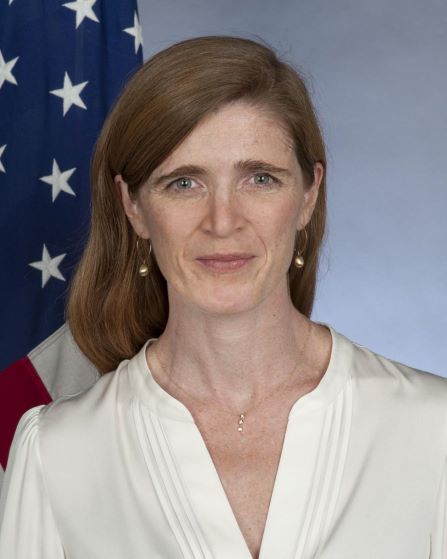By Michael Rubin
WASHINGTON (Washington Examiner) – Samantha Power rose to prominence as the author of Problem from Hell, a study of the US response to genocide. She wrote the book against the backdrop not only of the slaughter in Bosnia but also Rwanda. It not only won her a Pulitzer but also brought her to the attention of a freshman senator, Barack Obama, whose coattails she rode to become US ambassador to the United Nations.
Once in office, however, Power engaged in the same moral compromises she once publicly condemned. She created the Atrocity Prevention Board but stood largely quiet as Obama chose to ignore the acceleration of a small political uprising into the Middle East’s worst sectarian slaughter of the 21st century. Rather than resign when Obama chose to stand down in the face of genocide, Power let her ambitions get the better of her, sacrificed her moral authority, and remained. Now, as USAID administrator, history repeats.
President Donald Trump began the abandonment of Syrian Kurds, but President Joe Biden, Secretary of State Antony Blinken, and national security adviser Jake Sullivan appear determined to complete the job. They recently undercut the autonomous zone’s ability to finance its own operations. That they’re doing this in the face of Turkey’s own ethnic and sectarian cleansing campaign in northern Syria is unconscionable. Given the option and ability, Turkey would eradicate the Syrian Kurds in their entirety, driving them into the desert near Deir ez-Zor to die, as the Ottomans did to Armenians more than a century ago.
For the Armenians, the threat of genocide remains real. On September 27, 2020, the centenary of the Ottoman Turkish invasion of newly independent Armenia, the Armenian population in Nagorno-Karabakh faced a surprise attack from a combination of Azerbaijani forces, Turkish Special Forces, and Syrian mercenaries, many of whom were veterans of al Qaeda or the Islamic State. While the State Department and Central Intelligence Agency have yet to say whether the invasion caught them by surprise or whether they simply chose not to forewarn the Armenians, Azerbaijan’s subsequent behavior suggests that genocide remains the goal. Azerbaijani dictator Ilham Aliyev, for example, now suggests that the Armenian capital Yerevan is actually Azerbaijani territory. His wife, a UNESCO ambassador, celebrates “renovations” in which Azeris erase the Armenian past from pre-modern churches. Rather than dissuade Azerbaijan from such behavior, Blinken sidestepped US law to keep military aid to Azerbaijan flowing. While Power apologized while out of office for Obama’s failure to recognize the Armenian genocide, when faced with forces determined to continue it, she remains silent.
Then, there are the Tutsis about whom Power wrote in her book. The 1994 genocide in Rwanda was anti-Tutsi. While in the Obama administration, however, Power sought to withhold explicit recognition of the anti-Tutsi character of the genocide in order to extract concessions from Rwandan President Paul Kagame. The problem with the transactional approach, however, is that it legitimizes genocide revisionists and deniers. Today, many Hutu genocidaires remain ensconced just across the Rwanda border in Burundi, Congo, and Uganda, staging occasional terrorist attacks across the frontier, believing that Power’s moral confusion gives them a second chance to finish the job.








